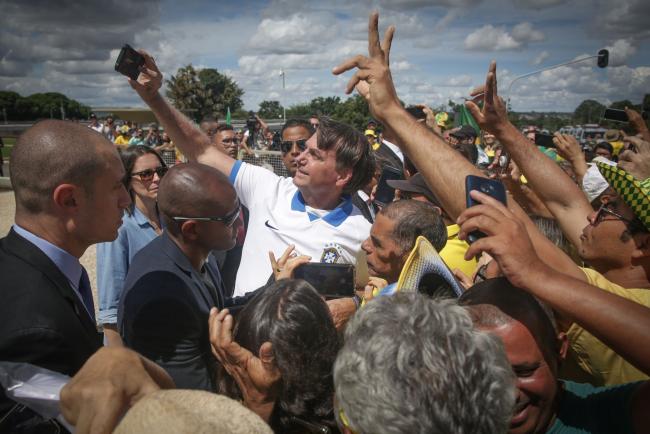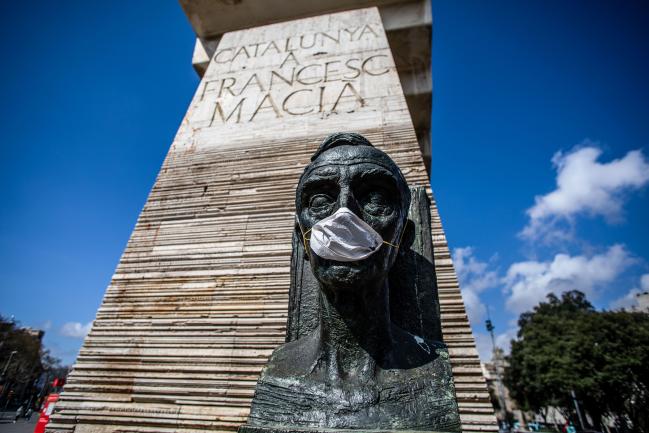(Bloomberg) --
The U.S. Federal Reserve deployed some unscheduled shock and awe against the coronavirus yesterday, slashing its benchmark rate back to a record low. Global markets slumped.
Today world leaders get their turn to try and calm investors, businesses and the general public as the virus takes hold across Europe, the U.S. and the Middle East, forcing widespread shutdowns. The Group of Seven, which includes the U.S., Germany, France and Japan, will meet by teleconference to discuss coordinated responses to the economic challenges.
Some governments are already enacting packages to support key industries like tourism and aviation, tide over small businesses and encourage people to spend. But a sense of global urgency and determination has come with a lag.
The G-7 itself has been struggling to matter since Donald Trump was elected on his “America First” platform. As Ben Sills, Arne Delfs and Jenny Leonard explain, Trump had to be persuaded (as G-7 host this year) to even have the call. The leaders of France and Germany quietly joined forces to coax him into it.
Broader tensions in trans-Atlantic ties, which resurfaced again with Trump’s ban on European travelers, may weigh on the talks. There are newspaper reports Trump tried to recruit a German-based company to get exclusive U.S. access to a possible coronavirus vaccine.
Today’s meeting will happen without the crucial in-person touch that has smoothed the way before. As this story notes, that makes leadership and coordination even harder.
Global Headlines
Defensive measures | Deaths exceeded 6,400 as worldwide cases topped 166,000. With Spain and Italy in lockdown, other European Union nations weighed tighter movement restrictions. South African President Cyril Ramaphosa declared a national state of disaster as counterparts in sub-Saharan Africa took similar measures. U.K. Prime Minister Boris Johnson wants car makers and other manufacturers to build medical equipment including ventilators. Thailand postponed its New Year holiday due in April. Kazakhstan barred entry to foreigners in a 30-day state of emergency.
Old foes | The decades-long enmity between two of Malaysia’s political giants looks set to continue. Former Prime Minister Mahathir Mohamad told Bloomberg Television’s Haslinda Amin that opposition stalwart Anwar Ibrahim had been pushing him to resign before he abruptly did so last month. Blaming the collapse of his administration on Anwar and saying some comments from his camp were “quite violent,” the 94-year-old said the opposition may lack the support it needs to replace the current government.
Biden’s vow | Joe Biden promised to choose a woman as his vice president should he win the Democratic presidential nomination. He made the pledge on stage last night with rival Bernie Sanders in the first debate held without a live audience because of concerns over the coronavirus. Sanders said he would also likely choose a woman.
- Read more here on Biden’s rise to front-runner status before tomorrow’s primaries in four states.
Netanyahu’s nemesis | Benjamin Netanyahu’s rival will be given first crack at forming Israel's new government today. Former military chief Benny Gantz has no clear path to forming a majority government, and his Blue and White bloc is balking at Netanyahu’s offer to team up in an emergency coalition. The proposed tie-up would ostensibly be formed to confront the virus but would be led, at least initially, by the prime minister, who’s battling graft charges.
What to Watch
- Italy’s government will meet today to pass a new package of measures including increased spending for its stricken health-care sector and moves to cover extraordinary layoffs caused by the coronavirus.
- Turkish President Recep Tayyip Erdogan, German Chancellor Angela Merkel and Macron will hold a meeting to discuss the situation in Syria via a teleconference tomorrow.

